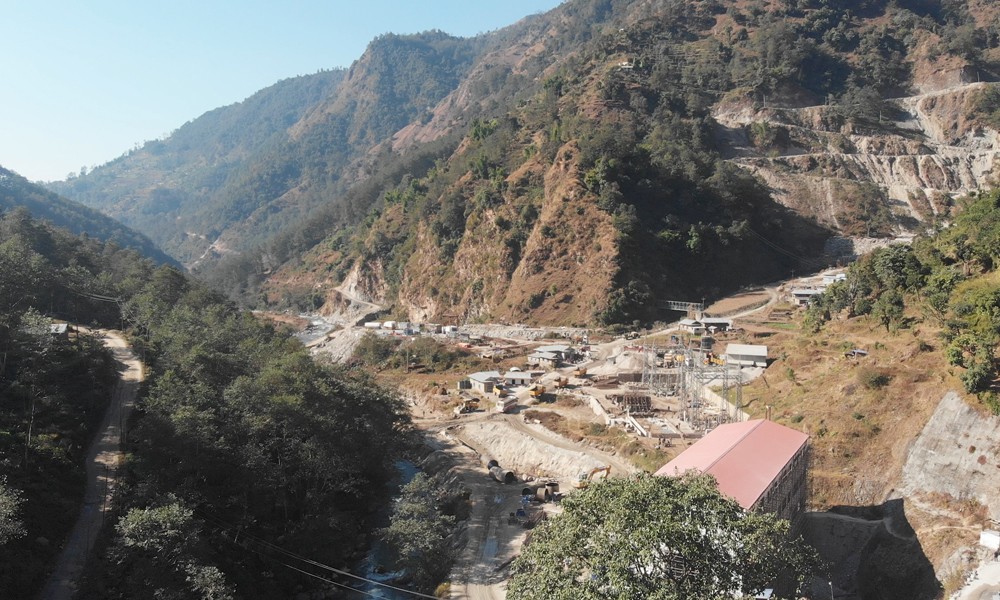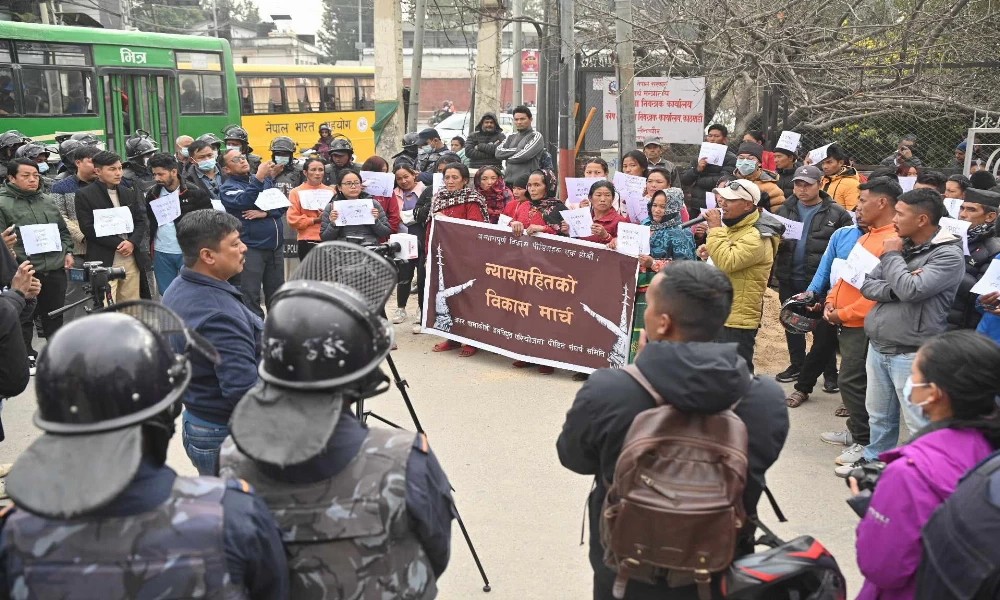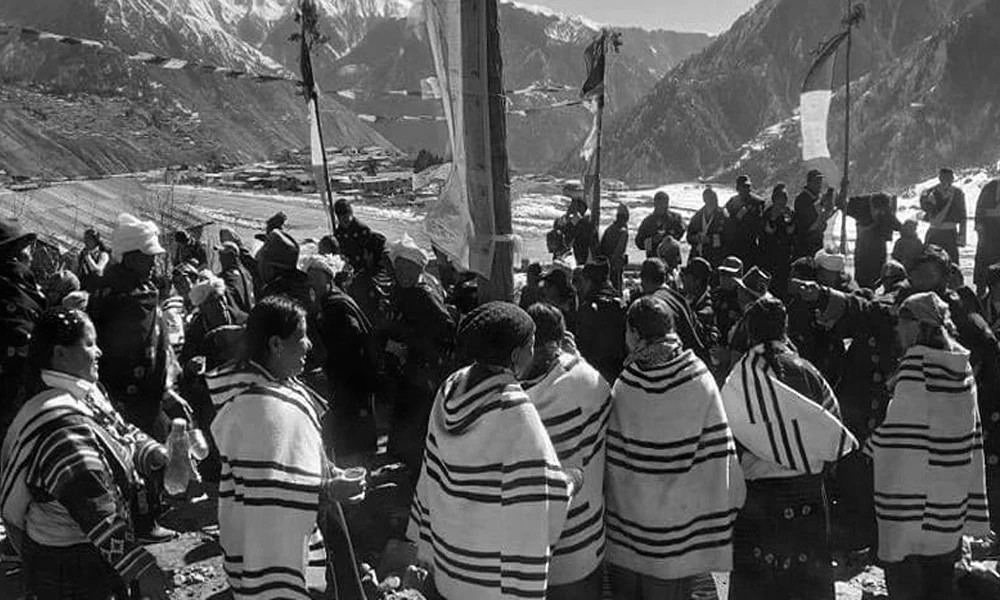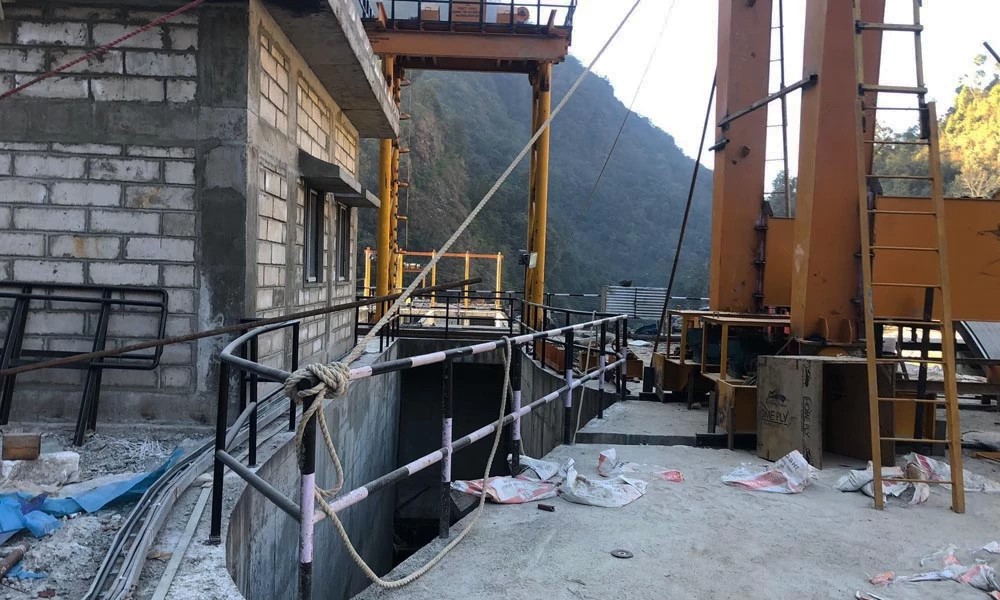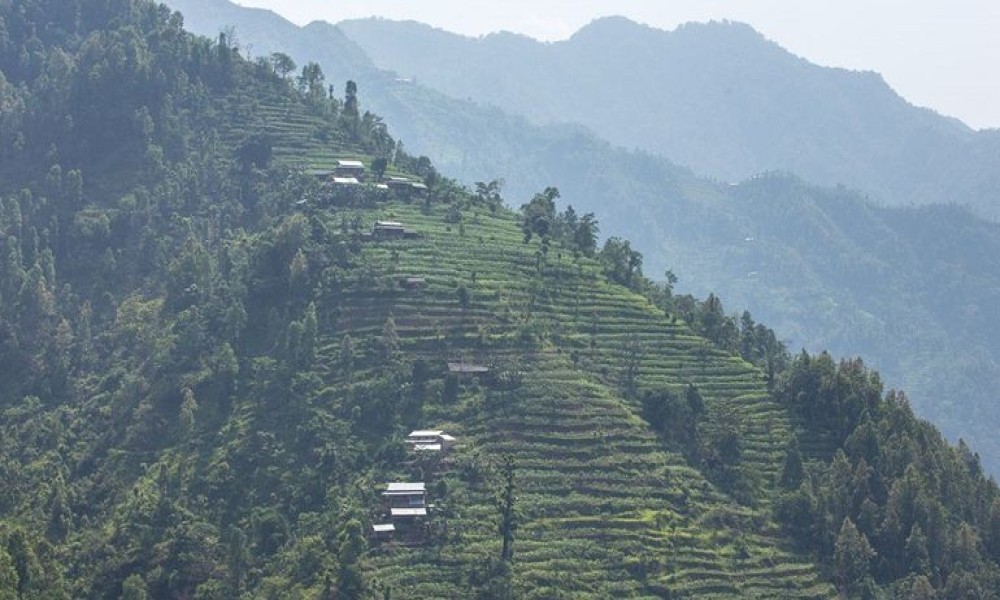Hydropower plants being constructed along Likhu Khola have adversely affected the lives and livelihoods of local people in rural villages of Ramechhap and Solukhumbu districts. Locals say the construction of power plants is not only harming their health, but it is also impacting local biodiversity.
Likhu Khola, a tributary of the trans-Himalayan Sunkoshi River, flows as a border line between Ramechhap and Solukhumbu district. In three different sections of this river, MV Dugar Group is building three different hydropower plants with a combined production capacity of about 157 MW. The group claims that they have put in place necessary measures to the impacts of their projects on local environment. But local people say their lives, livelihoods and culture are at great risk.
The group is developing Likhu A (29 MW) Hydroelectric Project through Numbur Himalaya Hydropower Pvt Ltd, Likhu 1 (77 MW) Hydroelectric Project through Pan Himalayan Energy Pvt. Ltd and Likhu 2 Hydroelectric Project (55 MW) through Global Hydropower Associate (P) Ltd along Likhu Khola.
Displacement of wildlife
Local people say none of the three hydro projects being developed by MV Dugar Group along Likhu Khola have followed the recommendations made in their own Environment Impact Assessment (EIA) reports. They also say that the projects have ignored the agreements between them and Local Governments/stakeholders.
"The Likhu river basin was a habitat of various wild animals and species. However, blasting and other construction activities have scared them away. These days, it is so hard to spot rare wild animals in the area," Hakim Basnet, an activist based in Gauri Shankar Conservation Area.
Local conservation activists also voice concern over the irreparable environmental damage caused by the projects. Hakim Basnet, an activist based in Gauri Shankar Conservation Area, says the construction of the projects has resulted in displacement of wildlife and loss of flora and fauna.
Basnet says: "The Likhu river basin was a habitat of various wild animals and species. However, blasting and other construction activities have scared them away. These days, it is so hard to spot rare wild animals in the area."
Ishwori karki, a ward committee member in Umakunda Rural Municipality of Ramechhap district, says an excessive use of chemicals has also endangered fish species in Likhu Khola. Karki says the local government would collect over Rs 100,000 in taxes from fishing contracts until a few years ago, adding that it is now hard to collect Tite Machha (stone carp) even for medicinal purpose.
Poisonous fodder
Local farmers living around the hydroelectricity plants are worst affected by construction activities. Narendra Basnet, a local farmer, says the machinery and vehicles used in the construction sites have caused air pollution.
"The air we breathe in is now filled with dust particles. The tree leaves that we collect for cattle feed are covered with dust particles. So much so that even our cows and goats do not eat these tree leaves unless they are washed," says Narendra Basnet, a local farmer
He says: "The air we breathe in is now filled with dust particles. The tree leaves that we collect for cattle feed are covered with dust particles. So much so that even our cows and goats do not eat these tree leaves unless they are washed."
He adds: "We clean our beds every morning. But when we return home in the evening, they are once again covered in dust. The construction of these hydropower plants is making our life hell."
Where did the honeybees go?
The forested cliffs in the Likhu river basin were home to the Himalayan giant honeybees. But Kedar Kumar Karki, a member of a local forest users' group, says all these honeybees have vanished after the construction of hydroelectricity plants. Honeybees are an integral part of an eco-system. They are important pollinators. Their displacement could have adverse impacts on agriculture and food security, a concern not addressed by hydropower developers.
Ignoring the agreement with local people
A committee of local forest users had signed a 13-point agreement with the hydropower developers working in the Likhu river basin. Most of the points of the agreement were for conservation of environment, biodiversity and culture of local community people. But the committee's President Umesh Basnet says the hydropower developers have not respected the agreement.
The hydropower developers had agreed to build a cremation site as per local culture. But a dam has been built in the area where local people wanted to have a cremation site. They had also asked the hydropower developers to build water taps for local people. But not a single tap has been built. Worse, even old water sources have dried up due to the construction works.
Rokat Basnet, a public relations officer of Likhu Hydropower project, claims that they have adhered to the recommendations outlined in the EIA reports. But local people beg to differ. They say their health, culture and livelihood means are in danger because of the unscrupulous construction of hydro plants.



